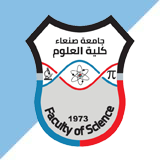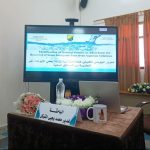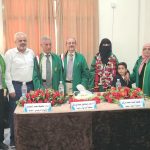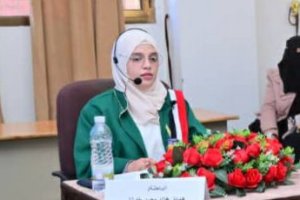Public MSc Viva-Voce Examination of Ms. Ghadeer Mohammed Yahya Al-Mutawekel
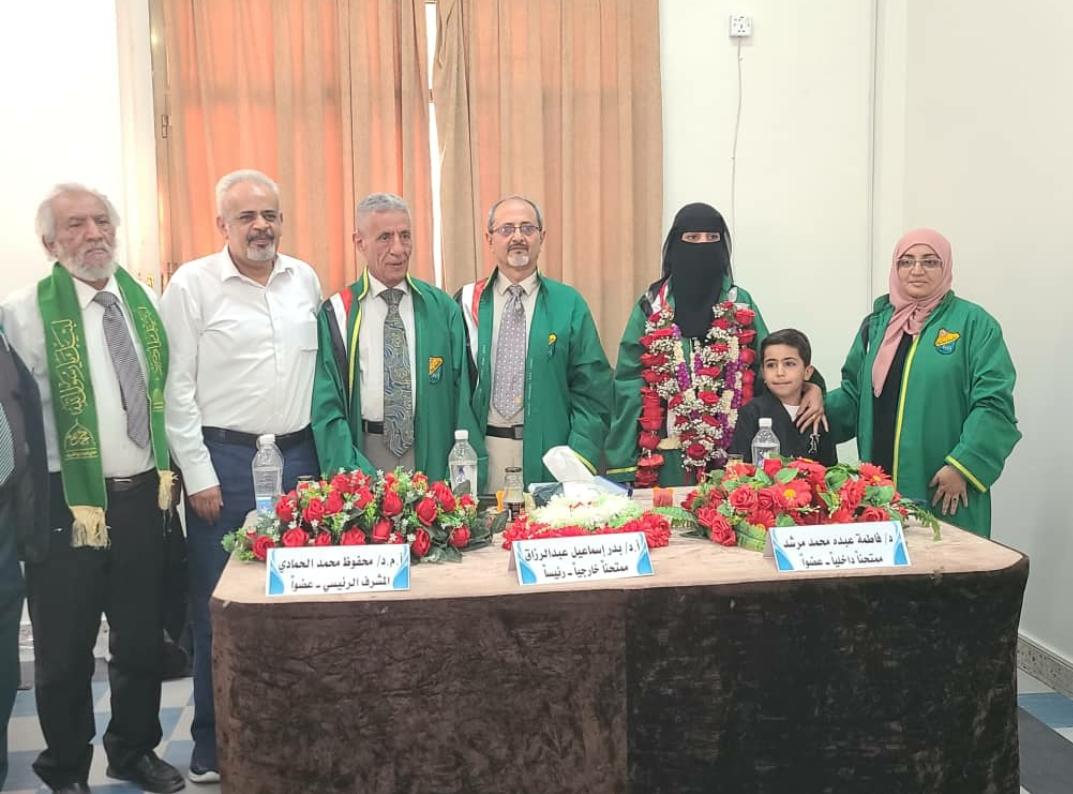
Public MSc Viva-Voce Examination of
Ms. Ghadeer Mohammed Yahya Al-Mutawekel
The Public Viva-Voce Examination for the MSc Dissertation entitled, “Modification of Natural Pumice as Adsorbent for the Removal of some Inorganic Ions form Aqueous Solutions”, submitted by Ms. Ghadeer Yahya Saleh Mohsen Al-Mahweeti, Department of Chemistry, Faculty of Science, was held on Wednesday 15/03/1446 Hijri corresponding to 18/09/2024. The Viva-Voce Committee, which was formed based on a resolution issued by the Post-Graduate Studies and Scientific Research Council, consisted of the following:
| # | Committee Members | Designation | University | Position |
| 1 | Prof. Badr Ismail Abdul Razzaq | External Examiner | Hodeidah University | Chair |
| 2 | Prof. Mahfouz Mohammad Saif Al-Hamadi | Main supervisor | Sana’a University | Member |
| 3 | Prof. Fatima Abdo Mohammad Murshid | Internal Examiner | Sana’a University | Member |
The study aimed to
– Remove certain ionic pollutants from drinking water using pumice, a type of volcanic rock found in the Yemeni environment, after modifying its surface.
– Modify the surface of pumice, a type of volcanic rock found in the Yemeni environment, to remove certain ionic pollutants such as fluoride and iron ions from drinking water.
The study reached a number of results including:
- The presence of certain ions in drinking water at concentrations above the allowable limit presents a risk to the health and safety of consumers.
- The potential to efficiently and cost-effectively remove fluoride and iron ions from drinking water from certain wells in Sana’a using locally available raw materials in Yemen in order to protect the health and safety of citizens
- The utilization of local alternatives for water treatment to reduce reliance on imported materials from abroad
Pumice stone is a safe and environmentally friendly material, even after treatment and efficiency upgrades. It can be recycled and used in a cost-effective manner
The study came out with a number of recommendations, including the conduct for further field studies to apply this technology for the removal of other organic and inorganic pollutants at the field level will help rural and urban communities gain access to safe, usable drinking water. Academic members, researchers, students, interested parties and the researcher’s colleagues and family members attended the viva.
The dissertation was examined and recommended by the Viva-Voce Committee for acceptance and approval. Then, the Student was recommended to be awarded the degree of Master of Science majoring in Analytical Chemistry with an overall grade of Excellent equivalent to 94%.
